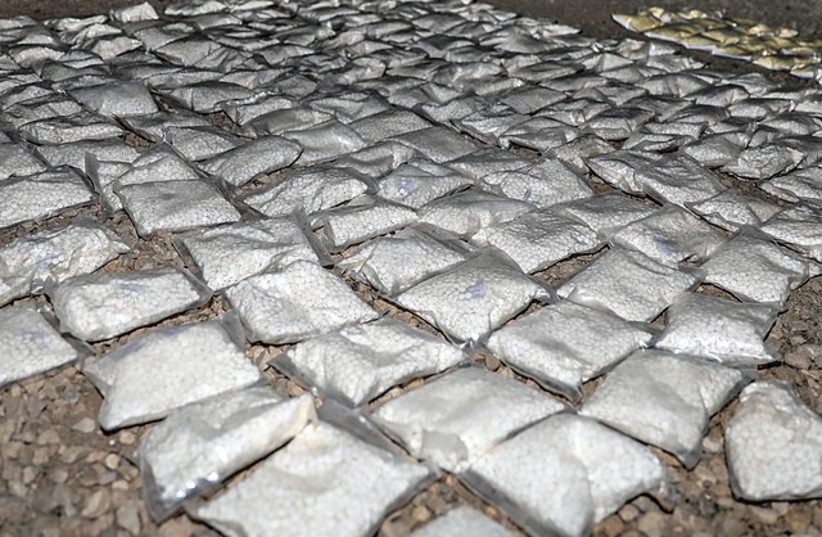In a video circulating on social media recently, Syrian rebels are shown storming what appears to be a substantial Captagon manufacturing lab.
Rebels are seen expressing their outrage at the production site, saying, “A bunch of pigs. All of this is poison, hallucinogenic pills."
Captagon, one of the world’s most infamous stimulants, carries a complex legacy with devastating implications for health, society, and politics.
Initially developed for medical purposes, it has become synonymous with illegal activity, trafficking, and addiction in the Middle East. The drug was first produced in 1961 by German pharmaceutical company Degussa, but it quickly transformed from a treatment for attention disorders and narcolepsy into a dangerous substance with catastrophic consequences.
Fenethylline, the active compound in Captagon, was marketed as a milder alternative to amphetamines. However, its use was banned as its severe side effects and high addiction potential became evident.

By the 1970s and 1980s, Captagon gained popularity among artists and athletes in France until it was fully prohibited in 1993 due to its harmful effects. Today, the drug lies at the core of extensive illegal operations, mainly in the Middle East, where it plays a significant role in trafficking and terrorism.
Syria as the global center of Captagon production
In recent years, Syria has emerged as a global center for Captagon production. The country’s prolonged civil war has created fertile ground for the drug’s manufacture, with illegal factories producing millions of pills annually.
These are smuggled into Gulf states, including Saudi Arabia and Jordan. In Saudi Arabia, Captagon is reportedly popular among truck drivers seeking alertness and is even used by teenagers. Despite Islamic fatwas prohibiting its consumption, the drug remains widespread and is sometimes seen as a survival tool in extreme situations.
Beyond its role in illicit trade, Captagon inflicts severe harm on users. The stimulant, which combines theophylline (a substance used to treat asthma but with heart rate-accelerating effects) and amphetamine (a well-known stimulant), induces heightened energy, euphoria, appetite suppression, and mood elevation.
However, prolonged use can lead to psychiatric disorders such as paranoia and hallucinations, alongside physical symptoms like tachycardia, high blood pressure, and psychosis.
Captagon addiction is marked by increased energy despite sleep deprivation, weight loss, extreme mood swings, and anxiety. Over time, these symptoms worsen, with long-term consequences including confusion, tremors, and seizures. Currently, there is no antidote for Captagon; treatment is purely symptomatic.
Use of Captagon by terrorist groups
Terrorist organizations, including Hamas, Hezbollah, and ISIS, increasingly rely on Captagon both for financial and operational purposes. The drug enhances combatants’ aggression and fearlessness while serving as a source of income through trafficking. During Operation Swords of Iron, evidence of Captagon use was found on the bodies of terrorists, highlighting the drug’s role in fueling violent acts.
The fall of Bashar al-Assad’s regime in Syria could significantly alter the region’s Captagon trade. Assad’s government has relied on Captagon production to sustain its economy amid international sanctions. Illegal drug factories, often linked to terrorist groups and regional smuggling networks, are a major source of revenue for the regime.
Regime change could disrupt industrial-scale Captagon production and dismantle its distribution network.
